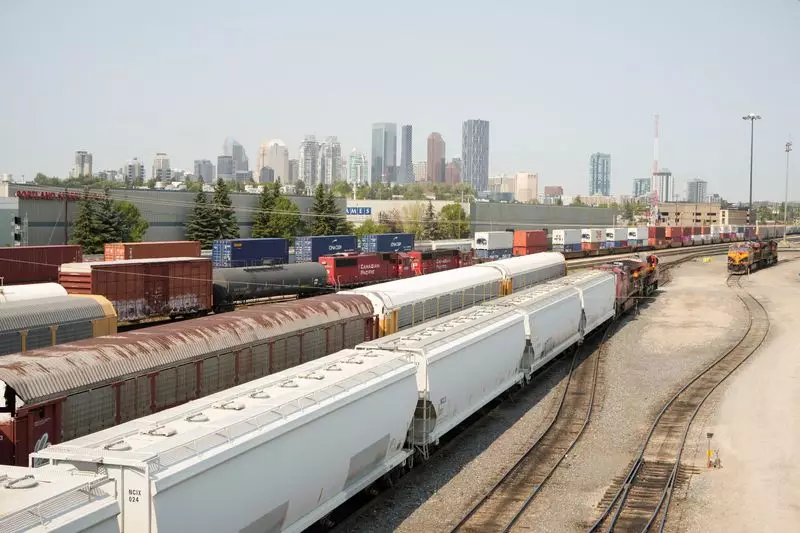The Canada Industrial Relations Board has made a decision to put a stop to the work stoppages that have been plaguing the country’s largest railways. This decision comes after an unprecedented service disruption that threatened to have a significant impact on Canada’s export-driven economy. The independent labor tribunal intervened after a request from Canada to resolve an impasse in negotiations between over 9,000 Teamsters members and Canadian National Railway (CNR) and Canadian Pacific (CP) Kansas City.
The Teamsters have expressed concerns over the ruling, stating that workers’ rights have been “significantly diminished.” They plan to appeal the decision in federal court. The board’s decision comes amidst ongoing labor disputes at CN and CPKC, which led to a lockout of Teamsters members and a rail stoppage. This disruption could inflict hundreds of millions of dollars in economic damage, affecting Canada’s economy heavily reliant on railways for transportation of commodities and goods.
Resumption of Railway Operations
The decision by the labor board will see a resumption of operations at CPKC starting at 00:01 ET on Monday. Despite CPKC’s request for workers to return on Sunday, the Teamsters have stated that employees will not come back earlier. The railway anticipates that it will take several weeks for the network to fully recover from the work stoppage, further destabilizing supply chains.
The board also implemented government requests to impose binding arbitration on the parties to reach new deals and to maintain the existing contracts until new agreements are reached. This decision has sparked criticism from labor unions, with the president of the Teamsters Canada Rail Conference stating that it sets a dangerous precedent for corporate Canada.
The disruption in railway services could have a significant impact on farmers and agriculture companies in both Canada and the United States. Industry representatives have emphasized the importance of seamless cross-border trade and urged government intervention to resolve the labor disputes. The Canadian government’s decision to refer the matter to the CIRB has been seen as a positive step by industry representatives.
The Teamsters union has been at odds with CN and CP over working conditions and pay, with disputes over scheduling, shift duration, and availability. While CN is pushing for longer shifts of up to 12 hours, the union is advocating for a more balanced approach through collective bargaining. The resolution of these disputes will have a significant impact on the future of labor relations in the railway industry.
The decision by the Canada Industrial Relations Board to halt work stoppages at the country’s largest railways marks a significant turning point in the ongoing labor disputes. The impact of this decision on workers’ rights, railway operations, and the economy at large will be closely monitored in the days and weeks to come. It is essential for all parties involved to come to the table and engage in productive negotiations to reach a lasting agreement that benefits both workers and the industry as a whole.

